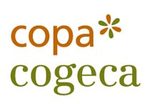|
|
| 01 jun 2018 |
12:59 |

|
Future of Food and Farming: EU Commission proposal must be improved significantly to ensure viable s
Reacting to the EU Commission proposal on the Future of Food and Farming, Copa and Cogeca warn against plans to erode farmers’ incomes and call for a real simplification of CAP rules. It is vital to ensure that there is no renationalization of the CAP, and it is backed up by a stronger budget.
|
|
President Joachim Rukwied of the European Farmers Organisation Copa warned that farmers’ incomes are 40% of average earnings and called for the maintenance of the CAP budget in real terms over the next programming period to enable farmers and their cooperatives to provide consumers with quality, sustainable food supplies at a price they can afford.
“We welcome the fact that MEPs have deplored any cuts in the EU’s farm budget and want more clarity on the Commission’s figures. A strong budget is vital for the future of agriculture and of rural areas. We want a strong, competitive and more sustainable European agriculture and CAP in the future, with common and simple rules across the EU. We believe that when it comes to the new delivery model outlined in this proposal, it will not result in a real simplification of rules for farmers”, President Rukwied said.
“We are very concerned about the impact of these proposals. Direct payments, that are the best and by far most efficient way to stabilize farmers’ incomes and to help them to better manage income risks, are being eroded further under this proposal. We oppose any capping or degressivity of payments as proposed by the Commission”, President Rukwied underlined.
Considering the disastrous income situation of farmers, we cannot accept that such a high percentage of direct payments is ring-fenced towards climate change objectives under the 1st pillar as it will further reduce their economic viability. Farmers’ economic sustainability is crucial to enable them to deliver more on environment and climate issues. “We cannot afford a further exodus of farmers and land abandonment that could have huge impact on biodiversity. In particular, we have great concerns with the impact on areas with natural constraints (ANCs) from their exclusion from the agri-environmental-climate commitments”, he concluded.
Cogeca President Thomas Magnusson went on to underline the importance of environmental measures in the CAP to improve sustainability and biodiversity. But he highlighted his concerns about the practicalities of the performance based measures. “Impact indicators for the environment need to take into account external factors such as climate change or pressures resulting from predators. We cannot accept that the bureaucracy for monitoring the performance of it has been shifted down to farmers and forest holders.
“It is positive news that the Commission has put greater focus on market orientation and competitiveness. The inclusion of the bioeconomy into the specific CAP objectives will help to find solutions for agriculture and forestry sectors to further contribute to the UN’s 2030 Sustainable Development Goals, the Paris Agreement and to the transition towards a more circular and resource-efficient economy. Innovation and investments in technologies will also significantlysupport this transition especially when it comes to enhancing the environmental and climate performance of the sectors. But we cannot accept that rural development funds could be used to finance the integrated Strategic Nature Projects when the budget allocation for LIFE has more than doubled”, said M agnusson.
“Finally, we need to continue measures under the CAP to encourage farmers to join cooperatives as this can improve farmers positioning in the food chain”, he insisted.

|
|
|
|
